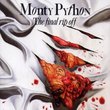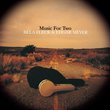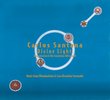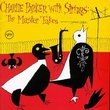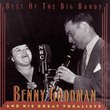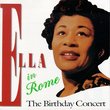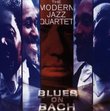| All Artists: Bill Evans Title: Turn Out the Stars Members Wishing: 1 Total Copies: 0 Label: Dreyfus Original Release Date: 1/1/1980 Re-Release Date: 7/23/1996 Album Type: Live Genres: Jazz, Pop Styles: Cool Jazz, Modern Postbebop, Bebop Number of Discs: 1 SwapaCD Credits: 1 UPCs: 764911655321, 738476126527 |
Search - Bill Evans :: Turn Out the Stars
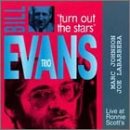 | Bill Evans Turn Out the Stars Genres: Jazz, Pop
|
Larger Image |
CD DetailsSimilarly Requested CDs
|
CD ReviewsGlorious, Indispensable--But Look Beneath the Title! Samuel Chell | Kenosha,, WI United States | 10/16/2001 (5 out of 5 stars) "During the last year of his life Bill Evans performed in a "zone" that must represent some sort of unrivaled triumph of the human spirit in the history of Western art. With each succeeding recorded documentation of his final months, weeks, and days, Evans plays more and more like a man possessed. The impressionistic style reminiscent of an early Debussy or Mallarme has been replaced by the soaring, rapturous lyricism of late Ravel or Yeats. There are no fewer than 3 recordings of Bill Evans music bearing the title "Turn Out the Stars," all 3 recorded, moreover, during the final 3 months of his life. Two of the albums (which I have yet to listen to) refer to his last session at the Village Vanguard in Manhattan. This "Turn Out the Stars" was recorded later, on August 2, 1980 (Evans died Sept. 15) in London. It is at once extraordinary, breathtaking, and just a bit overwhelming. In one sense, it inspires fear. Can a level of creativity this intense and inaccessible to the rest of us (I'm a pianist) be attained without paying some terrible price? In James Baldwin's "Sonny's Blues," the main character hears a gospel singer's joyous song and can only express bitterness and anger at the knowledge of the suffering required to produce such rapturous music. Listening to Evans' late music requires some resistance on the part of the listener, in some respects like hearing Coltrane's last recordings but with a heightened sense of "danger" due to the music's irresistible seductive pull.Evans is pushing the envelope all the way on this particular session. On the title tune, for example, he manages to create breathless, endless streams of rising and spiraling notes that practically require him to locate keys not on any piano. This version of "My Romance," with Bill playing rubato, medium tempo, and double-time first "against" and then "with" the rhythm section, may be the best of all the versions on record. Whereas previously the pianist had used the piece partly as a showcase for LaBarbara's drums and Johnson's bass, on this occasion it's Evans message that matters most. Yet on both of the aforementioned tunes the pianist also exhibits masterly control of dynamics, providing contrasting passages of delicate, subtly shaded beauty. It should be observed that technically this is far from a perfect record: the piano is slightly out of tune, the audio mix of the trio is never quite right, LaBarbara's percussion is poorly miked. The "Paris Concert," also recorded during Evans' last year, is overall a better album, capturing the interplay of the trio more effectively along with displaying Evans' impassioned lyricism on a superior-sounding instrument. But once you get caught up in the spellbinding singing of Evans on these final recordings, any considerations apart from the emanations of the artist's creative imagination are completely cast aside." Essential Late Evans svf | 02/24/2001 (5 out of 5 stars) "This CD (along with the "Letter to Evan" CD on the same label) is an essential live recording of the Bill Evans Trio at Ronnie Scott's in London during Bill's final days (released with permission of Mr. Evans' estate). These performances reveal Bill reaching a remarkable pinnacle in technique and harmonic and rhythmic inventiveness, also heard on the more high-profile CD Box Sets "The Last Waltz" (Fantasy) and "Turn out the Stars: The Final Village Vanguard Recordings" (WB). These Ronnie Scott recordings are every bit as exciting, sometimes even more freewheeling and electric in character. The sound quality is very good for a live club recording, and renditions of "I Do It For Your Love", "My Romance", "Peau Douce", and "But Beautiful" are definitive examples of the Evans/Johnson/LaBarbera trio at its finest." Better recording than "Letter to Evan" - but still not very bptr | 12/06/2005 (4 out of 5 stars) "This live recording at Ronnie Scott's in London was made 12 days after "Letter to Evan" in 1980, yet the piano still has a few keys out of tune - at least high G-sharp (heard clearly on track 4 1:45), high G (heard clearly on track 6 5:22)and high C (heard clearly on track 7 :32). You would think someone would have noticed. It is very grating on tracks 5 and 7.
At least the drums seem to be less distorted when he plays with sticks. The performance is very good." |

 Track Listings (7) - Disc #1
Track Listings (7) - Disc #1
